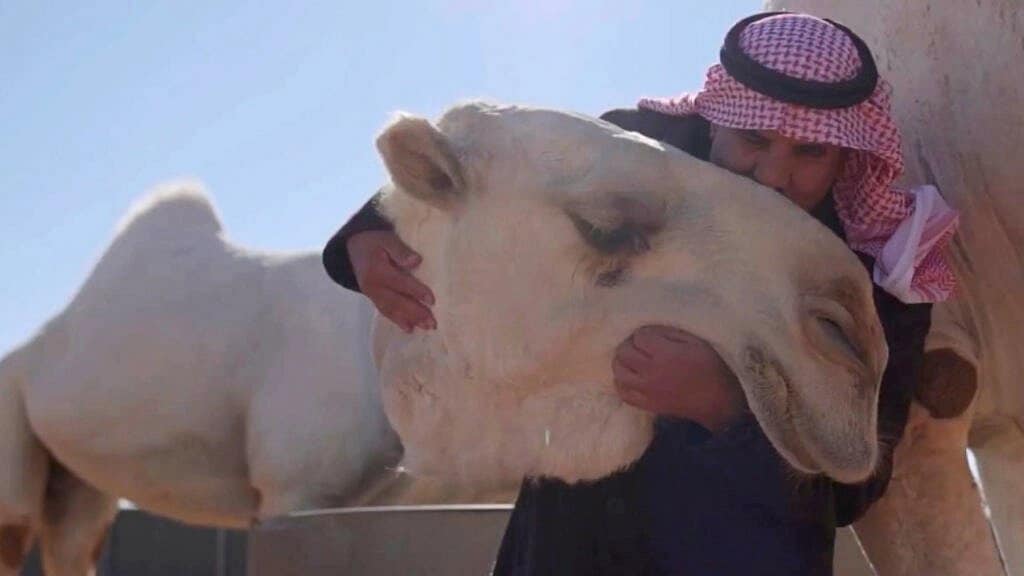With heated stalls and hot milk, life couldn’t get more glamorous for Saudi Arabia’s most beautiful camels when they stay at a luxury compound near Riyadh.
For 400 riyals (just over $100) a night, the camels are trimmed, scrubbed and pampered before taking part in beauty contests, where millions of dollars are at stake.
The camels, many of which are rented, are checked closely for Botox and other illegal enhancements which could see them thrown out for cheating.
And it’s all done in a Covid-safe environment to prevent any disruptive outbreaks.
The Tatman, described as the first hotel for camels, is an open-air desert compound near the annual King Abdelaziz Festival, which has prizes totalling $66.6 million.
It’s a logical step for the lucrative industry in the well-heeled Gulf, where camels are prized as a symbol of traditional life.
The animals are judged on attributes including their lips, necks, humps and colouring, and wins are highly prestigious for their owners.
Omair al-Qahtani, who is Saudi, checked 80 camels into the Tatman for 16 days, saying it would cost him $160,000-213,000.
The facility is “very comfortable, as the camels remain under their care and undergo regular medical examinations”, the 51-year-old businessman told AFP.
It has 120 enclosures, including singles and doubles, each equipped with plastic containers for water and fodder. Check-out is 12:30 pm.
During their stay, 50 workers look after the animals and are kept under strict sanitary conditions to minimise the risk of Covid cases.
‘Obsession with camels’
In years past, Qahtani and his assistants would set up tents near the festival, tending to and feeding the camels themselves.
Many of the four-legged guests are competitors in Mazayen al-Ibl contest, the world’s biggest camel beauty pageant and a highlight of the King Abdelaziz Festival.
Mohamed al-Harbi, media chief of the camel club that organises the competition, said the group dreamed up the hotel “to protect and preserve camels and also to reduce the burden on the owner”.
He said the hotel was popular, bringing in revenues of more than $1.6 million.
Money is no object for some attending the festival, which features well-appointed buildings and tents in the middle of the desert, and booths for luxury car-makers Rolls-Royce and BMW.
Saudi enthusiasts can spend hundreds of thousands of dollars on camels entered into the contests, where unscrupulous competitors sometimes seek an illegal advantage.
Forty-three dromedaries were drummed out of the festival when camel checkers spotted infringements such as Botox, silicone and fillers injected into lips, humps and tails.
But Harbi said the hotel provides a “check” so that people “can find any tampering early”, reassuring them their rented beasts won’t be sent packing.
Qahtani said this is a big advantage, as doctored camels can attract fines of up to $26,000.
The competitions “reinforce the obsession with camels in Saudi Arabia”, Harbi said.








